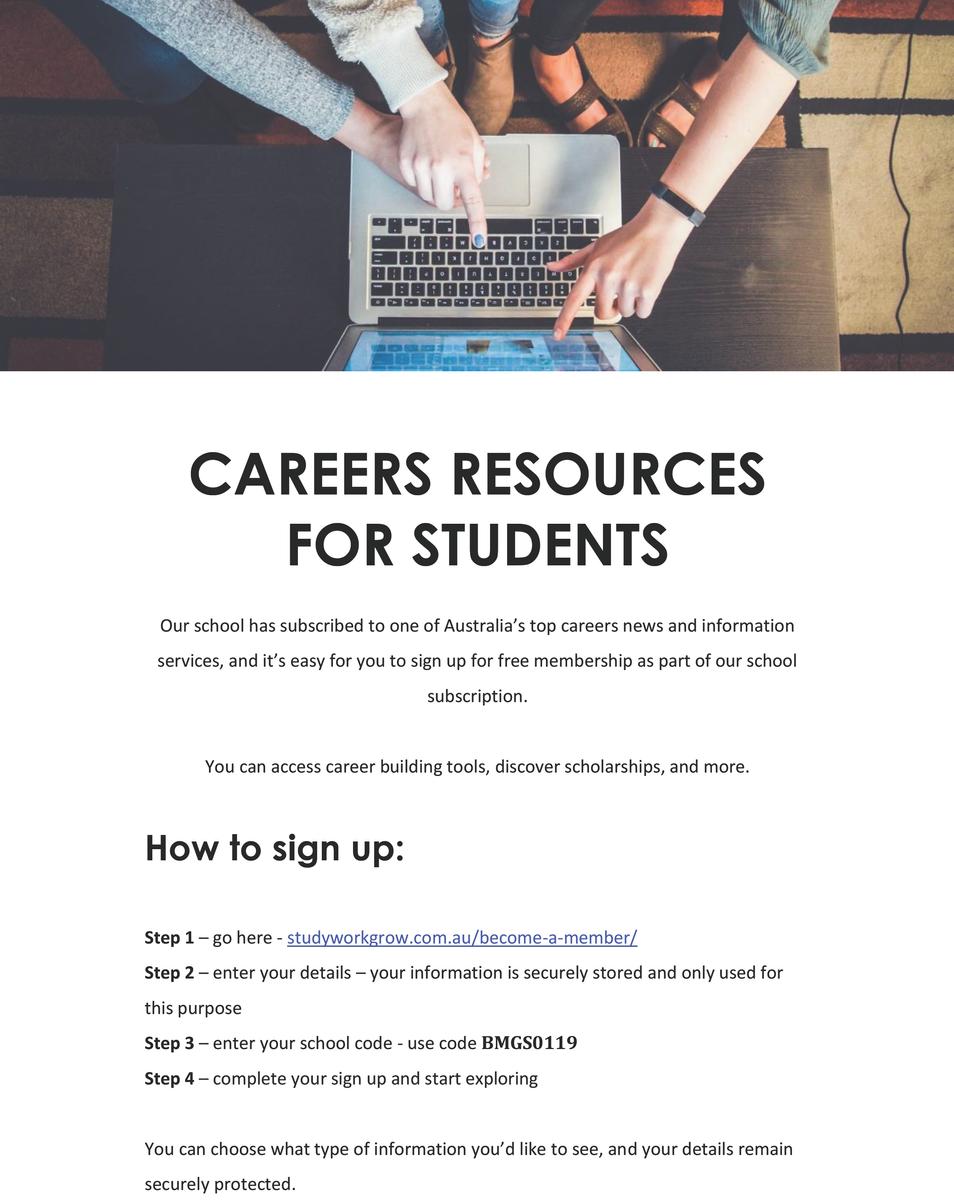From the Dean of Curriculum

10 Ways to Study that Aren't Boring
Sitting down at your desk and studying have probably never ranked top of any high-schoolers favourite things to do list… ever.
Sometimes there’s just no getting away from the fact that you have to knuckle down and do the hard yards. But there are ways that you can study and learn whilst having a bit of fun or at least making the whole process a bit more enjoyable.
Here are some awesome tips from our Careers Online provider Study Work and Grow:
1.Join homework clubs or study groups
A bit like going to the gym – some days you just don’t have the motivation but joining a class and getting the motivation you need can be really helpful. You might also find it more fun and engaging that sitting alone at your desk.
2. Watch documentaries
Some people (like me) love nothing better than a great doco. If that’s the case for you, why not search out some documentaries in fields that you’re studying or are related to those subjects and settle in for a good watch.
If watching a documentary isn’t generally your idea of fun… why not give it a try. They could grow your knowledge of real-world issues and topics. They could help you to improve your interdisciplinary thinking by introducing you to subjects you might not usually think about, which in turn might improve your creativity, problem-solving and social justice skills, as well as your general knowledge.
Watching a movie could also be helpful. For example if you’re studying English Literature and there’s a movie about your book, or if you’re studying history and there’s a movie about the event or era that you’re up too they could improve your comprehension and bring them to life for you.
Sidenote: Watching any random TV show, documentary, or movie and telling yourself or your parents that it’s “study” won’t cut it, you’ll have to be selective and look for valuable content.
3. Deep dive into topics online
In September 2020 teens were reported to spend an average of 14.4 hours each week online. So why not make some of that time productive and help you get ahead in school?
Spending time scrolling through social media, watching try not laugh videos on YouTube and chatting to you mates on Snap Chat do not count.
Researching ideas, watching video explainers, finding practice test or exam questions definitely do count though. You’ll just have overcome the temptations to go off track.
4. Do projects or presentations
Researching and putting together a project or presentation won’t just help you to learn about the one topic. You’ll also be developing your:
- Creativity
- analytical and critical thinking
- problem solving
- potentially team working and collaboration skills
- tech, communication, and other skills too.
If you find these kinds of activities motivating why not incorporate them into your personal study time. You could write blogs, make videos, write a letter e.g. to your local politician or council, create infographics, design a poster, the options are endless.
Competitions are also an easy way to put your knowledge to the test and challenge yourself, you’ll also be able to add them to your resume and might win some cool prizes.
5. Go places
The classroom isn’t the only environment that’s designed for learning.
You could visit museums, libraries, art galleries, theatres, and go along to educational and careers events.
If you’re interested in politics you could take a tour of Government or Parliament House. If law is more your scene you could sit in the public gallery during a sitting too.
There are lots of ways you can expand your knowledge without staring at your books.
6. Sign up for things that interest you
You could get a lot out of going along to workshops, completing short courses and microcredentials, or joining in with holiday programs. There are some that you might have to pay for, but others could be free.
7. Think outside the box
These days there are thousands of apps that are designed to make learning fun and engaging, why not see what’s available and how much they cost.
You could also get hold of some good old fashioned board games or learn some card games. Depending on your choices, games could help you to:
- improve your memory
- boost cognitive skills
- increase your processing speed
- develop logic and reasoning
- improve critical thinking
- increase spatial reasoning
- advance verbal and communication skills
- extend your attention and concentration span
- teach problem-solving
- grow your confidence and get better at decision-making.
Not that these should replace traditional study practices, but time spent on these games can be a fun way of winding down, spending time with family and friends, that also have additional benefits to your brain and skills development.
8. Work smarter
Sitting down to study for a solid stretch after a big day at school is not appealing to many people. So why not work smarter by utilising your downtime better and spreading out your study sessions.
You could us any time spent travelling to read over your notes, free periods at school could be helpful too (if you can resist the urge to chat to your mates), if you’re waiting for sports to start or an appointment, if you have half an hour to kill here or there why not hit your books and do a little study.
That way, when you get home you’ll have more time to chill out, play some sport, catch up with friends and family, generally spend more time doing what you enjoy.
9. Teach Others
If you have solid skills in some subjects, you could earn some pocket money and revise everything you’ve been learning while tutoring your peers or younger kids who need a little help.
Teaching other people is a great way to determine how much you know and where the gaps are too. So even if you’re not keen to tutor why not ask a parent, sibling or even a friend to sit down and let you “teach” them something.
10. Gain Skills
If you have a maths test coming up you’d be best revising for that but if you have a little time to spare, even if its just 10 minutes per day, why not start learning a new skill?
You could learn to touch type – its’ going to be helpful for getting assignments done, at university and in life generally.
Or you could learn the basics for a few coding languages or start learning a foreign language – could be useful in a gap year and attractive to potential employers.
Looking for more ideas?
Why not head over to our study tips page https://studyworkgrow.com.au/grow/study-tips/ for ideas to help you get motivated and stay focused.
Careers Resources For Students
Mrs Alicia Michielsen
Dean of Curriculum 7-12
Head of Learning Enrichment P-12
Careers Advisor


